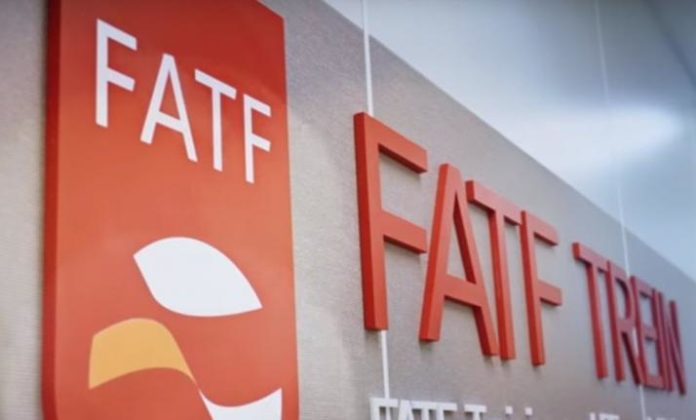Monitoring Desk
A virtual meeting of the Financial Action Task Force (FATF) plenary scheduled for Oct 21-23 will decide if Pakistan should be excluded from its ‘grey list’, according to English newspaper, Daily Dawn.
The decision will be based on a review of Islamabad’s performance to meet global commitments and standards on fight against money laundering and terror financing.
The FATF plenary was earlier scheduled in June but Islamabad got an unexpected breather after the global watchdog against financial crimes temporarily postponed all mutual evaluations and follow-up deadlines in the wake of Covid-19 pandemic. The Paris-based agency also put a general pause in the review process, thus giving additional four months to Pakistan to meet the requirements.
In February, the FATF had given Pakistan a four-month grace period to complete its 27-point action plan against ML&TF committed with the international community when it noted that Pakistan had delivered on 14 points but missed 13 other targets. On July 28, the government reported to parliament compliance with 14 points of the 27-point action plan and with 10 of the 40 recommendations of the FATF.
By Sept 16, however, the joint session of the parliament amended about 15 laws to upgrade its legal system matching international standards as required by the FATF. The government has already submitted its report to the FATF and its affiliated review groups and responded to their comments, detailing compliance with the 13 outstanding action points.
Based on upgraded legislation, the authorities expect the ‘virtual meeting’ to describe Pakistan as ‘largely compliant’ on at least 10 action points even if it was not given a formal exit from the grey list though it would now depend on the FATF assessment.
The FATF had announced in February that all deadlines given to Pakistan to complete 27-point action plan had expired and yet only 14 items had largely been completed leaving 13 unaccomplished targets. It strongly urged Pakistan to swiftly complete its full action plan by June 2020 or else it would be moved to the list of monitored jurisdiction, commonly known as blacklist.
The plenary had formally placed Pakistan in the grey list in June 2018 due to ‘strategic deficiencies’ in its AML/CFT regime after a push from India supported by the US, the UK and some European countries. The Pakistan government then committed at the highest level to a 27-point action plan but failed to meet deadlines.
The country’s compliance with the 13 remaining action points will be reviewed in eight key categories. The FATF will examine if the country had demonstrated remedial actions and sanctions applied in cases of AML/CFT violations, relating to terrorist financing (TF) risk management and TFS (terror financing sanctions) obligations.
The FATF will also judge if competent authorities were cooperating and taking action to identify and taking enforcement action against illegal money or value transfer services (MVTS) and had proven implementation of cross-border currency and bearer negotiable instruments (BNI) controls at all ports of entry, including applying effective, proportionate and dissuasive sanctions.
Pakistan has also to determine if law enforcement agencies (LEAs) were identifying and investigating the widest range of terror financing activity and that TF investigations and prosecution target designated persons and entities, and those acting on behalf or at the direction of the designated persons or entities besides showing TF prosecutions result in effective, proportionate and dissuasive sanctions.
The South Asian country’s outstanding action areas also include effective implementation of targeted financial sanctions (supported by a comprehensive legal obligation) against all 1,267 and 1,373 designated terrorists and those acting for or on their behalf, including preventing the raising and moving of funds, identifying and freezing assets (movable and immovable), and prohibiting access to funds and financial services.
Pakistan’s performance will also be under scrutiny at the virtual meetings later this month on enforcement against TFS violations including administrative and criminal penalties and provincial and federal authorities cooperating on enforcement cases and whether facilities and services owned or controlled by designated person were deprived of their resources and the usage of the resources.















